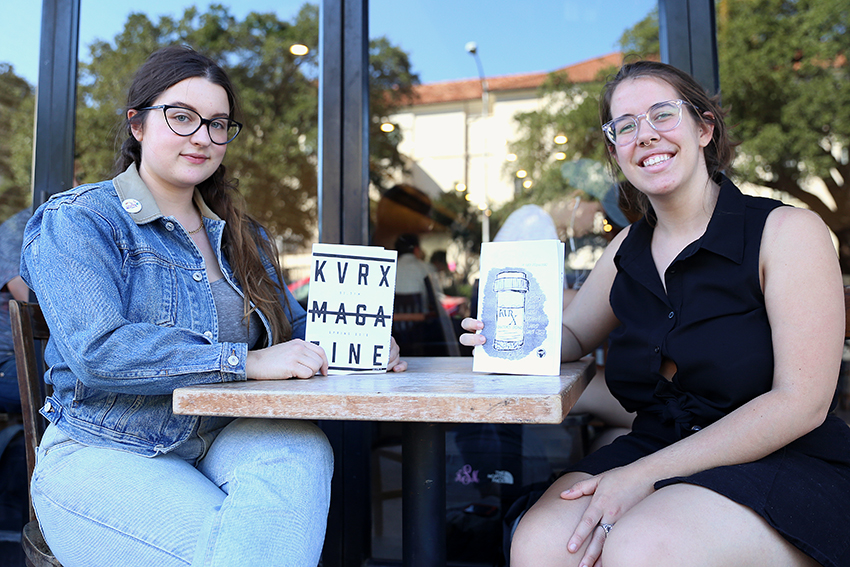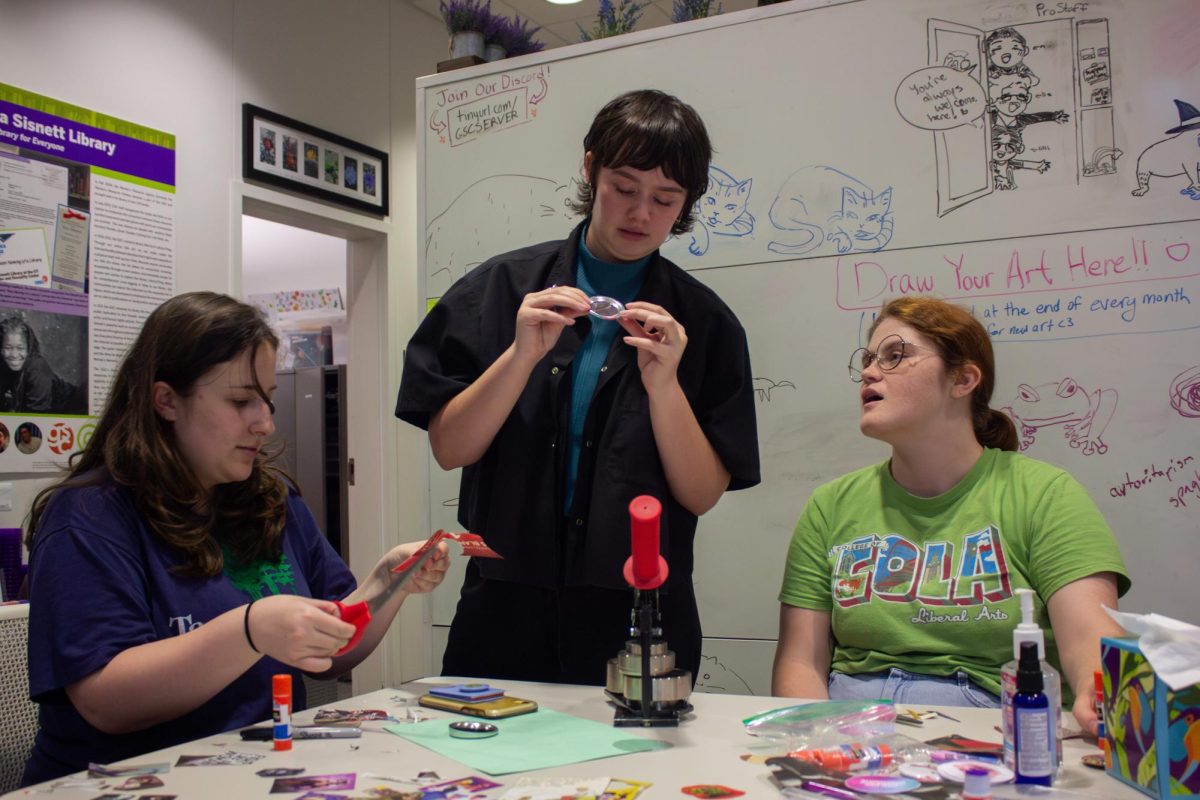DJ Lana Power holds the 68th copy of the spring 2016 KVRX zine in her hands, one of a hundred copies that will never be printed again. The finished product is a paper booklet, but tape marks, scribbles and slanted text reveal a human error typical of the nature of the zine.
“With something DIY like this, there’s much more of a connection to the human hands that made it,” said Power, a women’s and gender studies junior. “And I think that contributes to the aesthetic of the message.”
Emerging before the ’60s in the form of science fiction fan mags and later going on to celebrate punk rock and riot grrrl movements, the zine conveys a sense of privacy that official publications cannot. Zines, such as the ones being made at KVRX, are self-published by small groups or individuals. Students at KVRX are currently working on a zine to be released before Thanksgiving.
“There is something intriguing about the possibility of a zine,” Power said. “It’s small and easy to read. It’s so tangible that it can just fly around, and who knows where those copies are now?”
The zines are produced on a semesterly basis but float around as KVRX mementos indefinitely. While Power and rhetoric and writing junior Roxanne Zech, the public relations director of KVRX, headed the project, they said it is a throwback to the original KVRX zine, The Call Letter, which disappeared for 20 years after ’80s and ’90s zine culture died down. When recreators like Power and Zech pored through an archive of Call Letters to revamp the project, they decided to ditch old newspaper formats for a style that suited the station.
“You’ll find some really weird stuff in here,” Zech said. “You’ll find manifestos, you’ll find an article that says, ‘Why KVRX is Queer as Hell.’ We wanted the zine to serve as a representation of who we are behind the microphone.”
DJs played a large role in producing the fall 2015 edition, where readers are instructed to follow a recipe and fix themselves a “delectable choice cocktail” before tuning into the playlist and flipping through the pages. Light traces of tape marks on the finished product reveal where Power had cut and pasted groups of typed texts and drawings.
“There’s some pieces in our zines that I don’t think would have been heard otherwise,” Zech said. “The back cover of our first zine was a doodle that was just drawn and was hanging up in the booth. It’s a way to immortalize the DJs of the current year and the cultural experience that is KVRX.”
According to Power and Zech, KVRX often runs into a problem of being an organization regulated by the University while also being filled with “a bunch of weird college kids.” They began the project with the mindset that the zine would not be a formal avenue of advertising, but rather a therapeutic outlet. Contributors in the station were more likely to share knowing that the product would never make it to the internet.
“It’s not forever online,” Zech said. “Which really lends itself to people being more personal and sharing controversial ideas or more crazy ideas or more personal anecdotes than they would if it were.”
Art history senior lecturer Jason Urban, who proposed and now teaches an undergraduate course called Zines and DIY Publishing, said he recognizes the importance of zines being kept off the internet to satisfy an audience that still craves physical experiences with text.
Students in Urban’s course create weekly zines with open-ended and creative topics such as Day in the Life, which required students to summarize a 24-hour experience.
“There was a broad range of the way people interpreted that and it definitely got private,” Urban said. “Students shared things like bad habits, bad experiences, embarrassments … things they wouldn’t normally share with a stranger. Somehow, the zine is a protective environment where those things can be shared.”





















